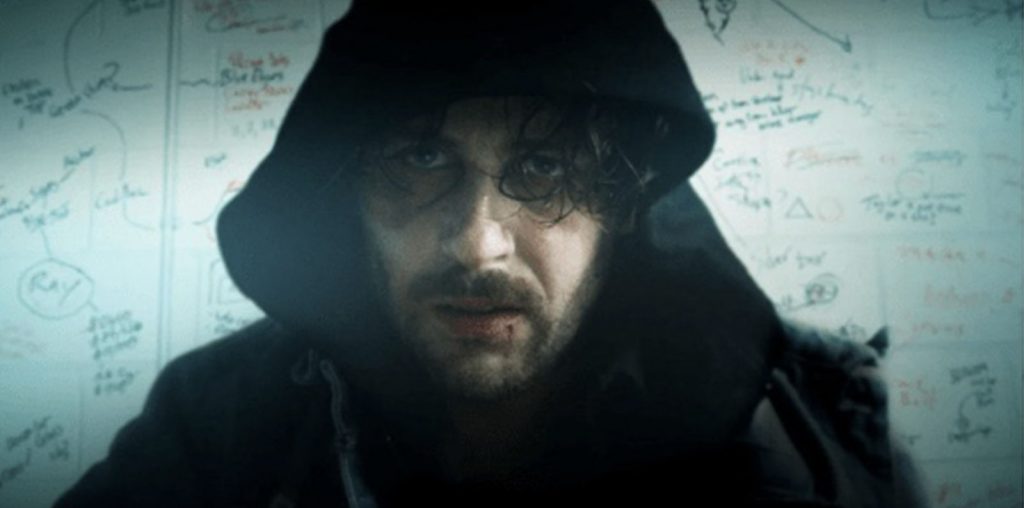
Majo Tonorio (Rodriguez) is a socially conscious rapper and poet from L.A. who launches her music career in an attempt to help her drug-addicted mother get out of prison. She meets DJ Santa (I know, I know…) while performing on a web-based radio station and sets out to introduce the world to her own brand of political hip-hop. But she quickly gets caught up in the real politics of hip-hop as contracts, fist fights, and “radio-friendliness” force her to make changes to her music.
This will be the performance that puts Gina Rodriguez onto people’s radars. It’s hard to believe that she wasn’t an emcee before starting this project. She trained for five months before filming began, learning how to rap and perform on stage. The end result is a young woman with an outstanding delivery and a powerful voice. Her high-pitched inflections will remind some of Nicki Minaj, which should be taken as a huge compliment. When she’s not rapping, Rodriguez holds her own, acting alongside legends such as Edward James Olmos and Lou Diamond Phillips. Every time she’s on screen, she’s captivating. She draws your attention and keeps it until passing the baton on to her co-stars.
Lou Diamond Phillips gives his best performance in years. Playing Majo’s father, Jose, he makes due with a subpar side plot about working as a landscaper. His boss, an all-business realtor, suggests he fire his tattooed crew in an attempt to look more professional. Ultimately, his story comes off weak in the overall narrative but Phillips is fantastic throughout. And in the third act, he defends his family in one of the most badass scenes in recent memory.
One other noteworthy performance comes from an unlikely source. Texas rapper Chingo Bling plays Rayborn, a small-time promoter and entrepreneur. The role is somewhat autobiographical (in fact, the bobblehead on Rayborn’s desk is an actual Chingo Bling product) and he delivers his dialogue with great comedic timing, especially for someone with only one other film credit to his name (2010’s Lean Like a Cholo). And while his rap career is going strong, hopefully Chingo will start popping up in other films.
In the end, Filly Brown’s problems lie in the scriptwriting and the editing. Strong performances can only get you so far. The film tries to do too much. From discussing racial insensitivity, gender in hip-hop, addiction, the shadiness of the music business, the importance of politics, statutory rape, love connections, the importance of honoring your past. Other filmmakers can and have fit this many elements cohesively into one film but in Filly Brown the result is a lot of watered down storylines instead of one strong narrative. That being said, this is a tremendous effort from Youssef Delara and Michael D. Olmos (who collaborated in 2010 on Bedrooms). It will undoubtedly be one of the best hip-hop films of the year.
